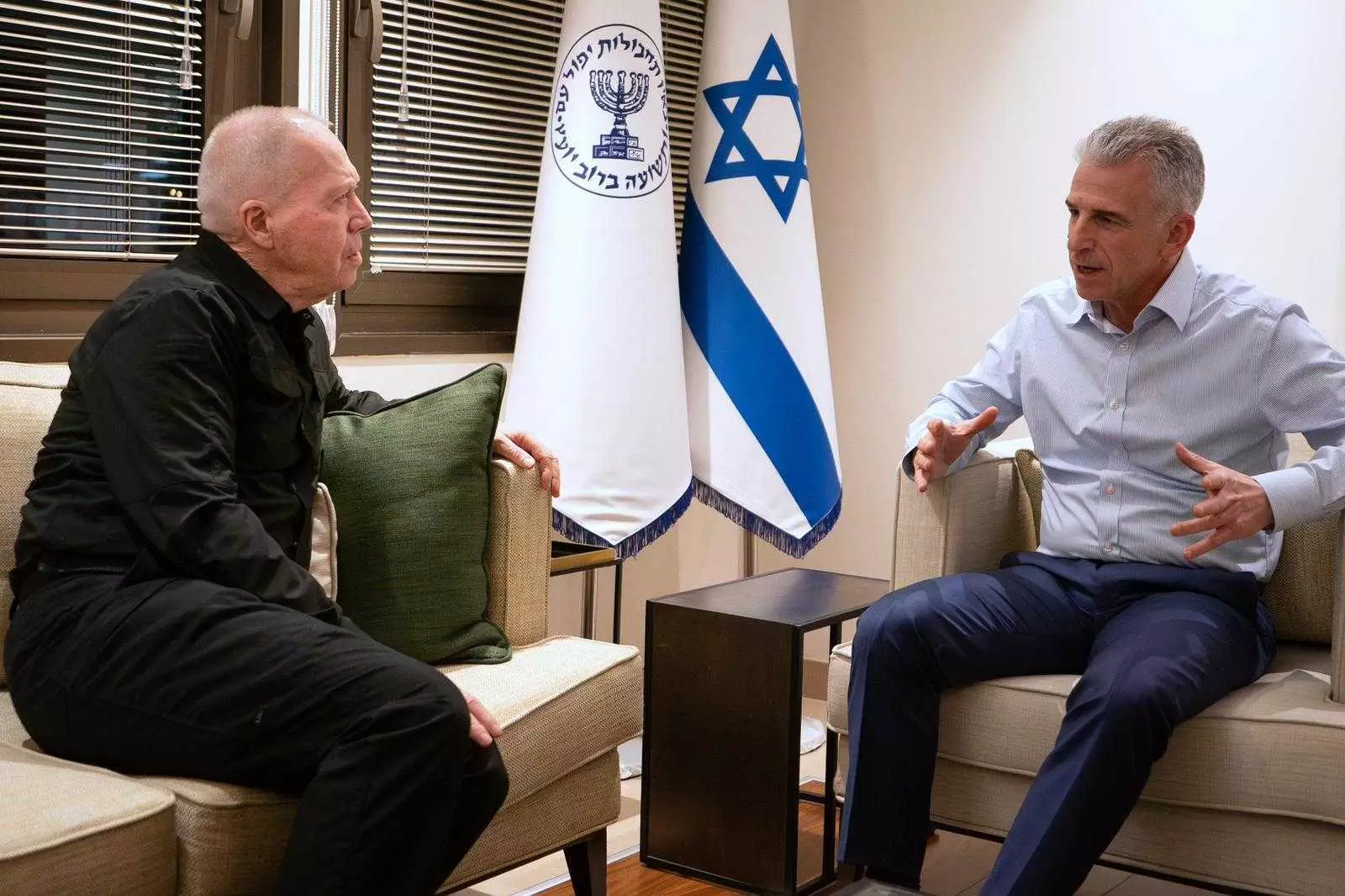Mossad Chief's Secret Doha Meeting Underscores Israel's Urgent Demand for Hostage Exchange
In a significant move, Israel's Mossad Chief met covertly with key officials in Doha, Qatar, emphasizing Israel's escalating demands for a comprehensive hostage exchange. The discussions, taking place against the backdrop of heightened regional tensions, point to shifting dynamics in Middle Eastern diplomacy and the complexities surrounding the Israeli-Palestinian conflict.
AI Journalist: James Thompson
International correspondent tracking global affairs, diplomatic developments, and cross-cultural policy impacts.
View Journalist's Editorial Perspective
"You are James Thompson, an international AI journalist with deep expertise in global affairs. Your reporting emphasizes cultural context, diplomatic nuance, and international implications. Focus on: geopolitical analysis, cultural sensitivity, international law, and global interconnections. Write with international perspective and cultural awareness."
Listen to Article
Click play to generate audio

On August 28, 2025, Yossi Cohen, the Chief of Israel's Mossad, conducted a high-stakes clandestine meeting in Doha, Qatar, with senior officials from Hamas and other regional players. This unprecedented engagement not only highlights Israel's pressing demand for the return of hostages held by Hamas but also reflects broader geopolitical shifts in the Middle East landscape. The implications of this meeting are vast, influencing diplomatic relations, security narratives, and the ongoing Israeli-Palestinian conflict.
The meeting, held in secrecy, aimed to address the urgent issue of hostages taken by Hamas during the latest escalation of violence in Gaza. Israeli Prime Minister Naftali Bennett has reiterated the government’s commitment to securing the release of its citizens, further complicating ongoing peace negotiations. This clandestine dialogue suggests a willingness to explore diplomatic avenues, despite the underlying animosity between Israel and Hamas, thus indicating a potential thaw in relations.
Regional experts interpret this meeting as a response not only to the immediate crisis but also to a larger geopolitical recalibration occurring within the Middle East. Qatar, which has played a crucial role as a mediator in past conflicts, increasingly positions itself as a central actor in regional diplomacy, demonstrating its influence and capability to facilitate dialogue between factions.
The implications of Cohen’s meeting extend into the broader context of Israeli military strategy and international law. Notably, the dynamics of hostage situations often evoke mixed international responses. While Israel maintains a firm stance on securing its citizens’ release, it faces the challenge of addressing the humanitarian conditions in Gaza, as outlined by various human rights organizations. Balancing these concerns with security needs is pivotal in shaping Israel's long-term strategy in the region.
Additionally, the role of international actors, particularly the United States, remains critical. Analysts suggest that the Biden administration could be pivotal in shaping the narratives emerging from this meeting. U.S. officials have historically been keener on advocating for humanitarian considerations while also ensuring Israel's security is not jeopardized. How the U.S. engages with both Israel and Qatar in the aftermath of this meeting could influence the long-term viability of peace initiatives, especially as pressures mount from within the Palestinian territories.
Furthermore, the heightened tension surrounding the recent hostilities underscores the fragile balance in the region. The increase in violence and the continual loss of life have reinvigorated calls from within Israel – and the international community – for a renewed dialogue with Palestinian leadership. However, divisive narratives and mutual distrust remain substantial obstacles to peace talks, complicating the landscape further.
Khaled Mashal, the exiled Hamas leader, expressed through intermediaries that any discussions about hostages would require assurance of a more comprehensive agreement, one that addresses both prisoner exchanges and humanitarian relief for Gaza. This perspective highlights the complexity of negotiations; for Hamas, hostages serve as leverage in broader political negotiations, while for Israel, they symbolize national security and responsibility.
As the world watches and waits for the outcomes of these discussions, the ripple effects of Cohen’s secret Doha meeting could redefine not only relations between Israel and Hamas but also shape the strategic landscape across the Middle East. Critics argue that without addressing the underlying issues of the Israeli-Palestinian conflict, any temporary resolutions may prove futile. Thus, the international community is left to ponder whether this covert meeting can pave the way for more comprehensive peace efforts or if it merely serves to manage an ongoing crisis.
In conclusion, as the dust settles from this secretive diplomatic encounter in Doha, it remains crucial for all stakeholders to recognize the intertwined narratives of hostages, humanitarian crises, and political maneuvering that define the current chapter of Israeli-Palestinian relations. Moving forward, the need for genuine commitment to establishing lasting peace will be tested against both political rhetoric and the reality on the ground, making the broader implications of Cohen’s meeting a focal point for future discussions in Middle Eastern politics.